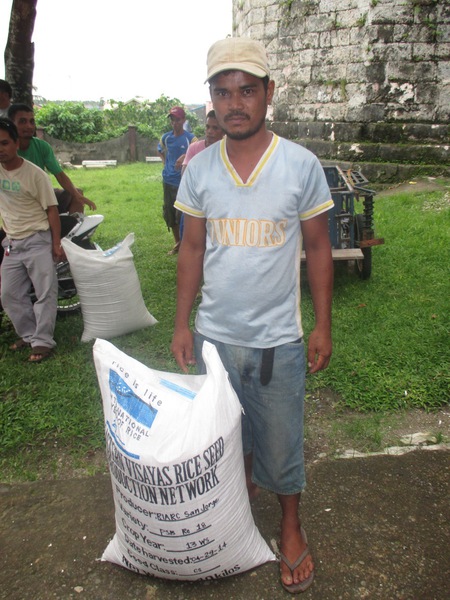Since the typhoon Haiyan hit the Philippines eight months ago, the affected areas have been going through a phase of regeneration. After supporting local schools, Caritas Czech Republic, which has worked in Western Samar from the beginning of the crisis, has also decided to support local farmers in the region.
Farming plays a major role in the country’s economy and in its economic growth. The lives of more than half of the population depend on farming, which is the main source of food for the Philippine population. However, the lives of farmers and breeders who were already poor before the damage inflicted by the typhoon have now become even worse. For this reason, Caritas Czech Republic has decided to focus its efforts on supporting local farmers.
Caritas Czech Republic in cooperation with its local partner, the Diocesan Social Action Service of Calbayog, supports 287 rice producers and 80 women across six towns in Western Samar, from which four (Iba, Sawa, Buenavista and Cogon) are situated in the area of Basey and two (Osmena and Panan-Awan) in the area of Marabut.
Rice farmers will receive farming tools and each of them will be given 40 kg of seed, hand tractors and ducks which will help fertilise the fields since their excrement serves as an effective fertiliser. The ducks will also loosen the soil by walking on the fields and searching for food. Women will also receive  equipment, young vegetable plants and information, so that they can set up gardens and maintain them. In the future they will be able to trade this produce at the local market or Fair Trade Shop.
equipment, young vegetable plants and information, so that they can set up gardens and maintain them. In the future they will be able to trade this produce at the local market or Fair Trade Shop.
All the supported farmers will go through training on environment-friendly farming so that they will be able to lower their production costs, increase their income and support a healthy diet while protecting the environment. An example of this is the production of their own humus with the help of purchased dung-worms. To date, organic waste typically ends up at disposal sites or gets burnt.
The farmers, future gardeners and other local inhabitants will also learn about climate risk and its influence on their sustenance possibilities. With the help of Caritas Czech Republic, they will be able to work out plans to start solving these risks.







